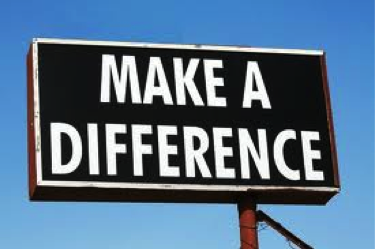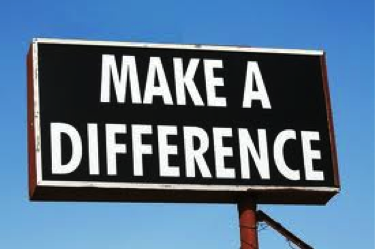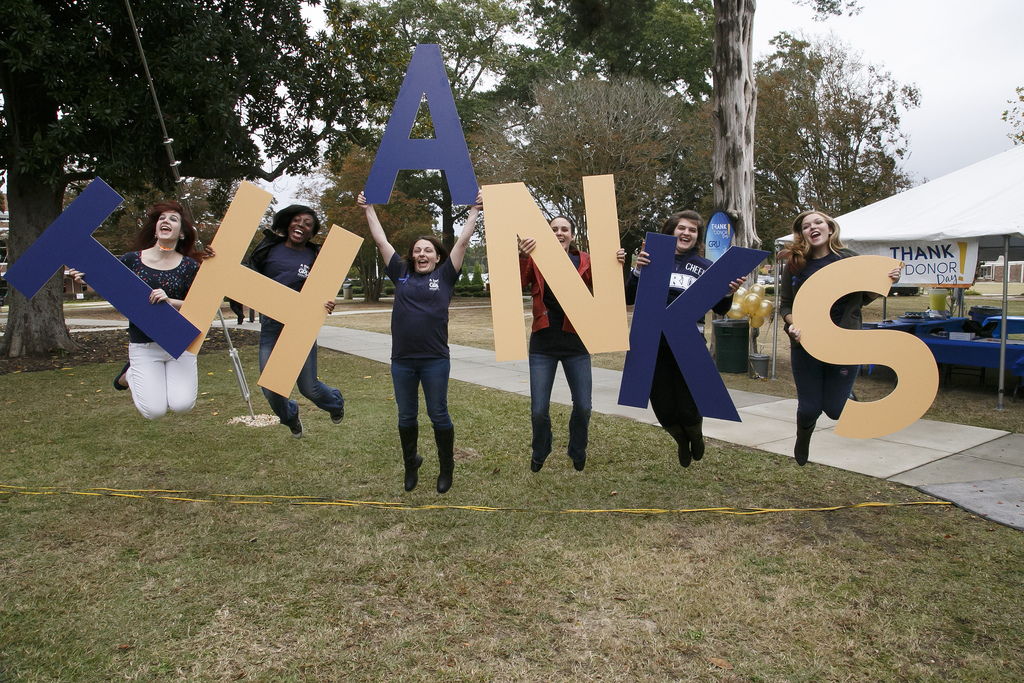
John Kennedy once said, “One person can make a difference and every person should try.”
I know one thing for sure: We all want to make a difference in some way or another. And I think more and more, donors are realizing that they can make a difference – that the power of one is alive and well.
One thing that Jeff and I are constantly telling our clients is that a key principle of major gift fundraising is that donors want to know they made a difference. This is one of the most critical parts of any current or future transaction.
It’s critical to the current transaction because the donors need to hear back that in fact the gift they made really mattered. Let’s be honest. You yourself need to have this kind of information when you give a gift or do something for someone. You need to know that it mattered. And if you don’t get that information, it immediately affects how you feel about yourself AND the other person.
It’s also critical to a future transaction. Here’s how. If you don’t properly inform the donors that they are making a difference in their giving, they will likely not give again. I just do not understand why so many people in our line of work don’t understand this point!
Oh, they say they do, but then they:
- ….take their time thanking the donor for his or her gift. We have seen systems in place that take 3 to 4 weeks to get a thank you out the door. Unbelievable.
- …really don’t connect the thank you message to the intent of the gift. So the gift comes in. It either tells you what it’s for or the MGO knows the donor’s interests but the thank you goes out without any reference to the donor’s interest or intent. Jeff and I see this happening all the time. It is so callous and uncaring – and so unnecessary.
- …don’t give the donor specific feedback. I have seen so many thank you letters that go out with such general nicey-nicey blather, saying absolutely nothing and sounding so fake and superficial that it makes you want to scream! And no one in the organization is either aware or seemingly caring about closing this important information loop to the donor.
So that’s how we operate and then we wonder why donors are flocking out the back door of our organization. Remember, the greatest cause of donor attrition is that the donor did not know she made a difference.
And Jeff and I see this all the time – donor files where every single year there is a loss of revenue from 40 to 60% – millions and millions of dollars – all because we do not care for our donors properly.
What is it going to take to get an MGO or a major gift manager to really care about the donor and give good and caring feedback? Here’s what I think:
- It will take failure – sad to say, often you cannot get the attention of an MGO on this point until it is too late. We have seen this happen over and over again. The MGO just keeps the bad behavior going, the donors go away, the numbers plunge, the MGO gets fired. This is so unnecessary.
- It will take a change of heart – hopefully, we can motivate some folks through these writings to put on empathetic, compassionate and understanding glasses so they can view donors in a different way. I want you to look at your caseload not as a group of donors but as individual donors. I want you to see that one special person who longs to make a difference. I want that person to grab your attention, grab your heart and grab your will. If I can persuade you to do this – to see the donor as a real person with these strong longings to make a difference – then I can be assured that your heart will change and you will find the strength, will and persistence to do the right thing for this donor.
Remember, donors do not need you to be fulfilled in their lives and in their giving. They will “give it a try” with you and see if you provide the right feedback and relationship. If you don’t, there are plenty of other places they can and will go.
I think we often forget this point, and the reason behind it is either arrogance or ignorance. We forget that donors have a ton of choices for their giving. They really don’t need to put up with our callous insensitivity and just sit back and give. And they won’t.
So rather than wait and let bad things happen, I suggest you inventory how donors are treated in your organization. Give a gift and see how you are treated. Or chart out the process and see how it works and feel how it feels. Go to the extent of asking a donor how she likes your treatment of her. You may be surprised at what she says.
We all want to make a difference with our labor and our resources. Let’s commit to treating others the way we would want to be treated.
Richard
Read the entire series:






0 Comments